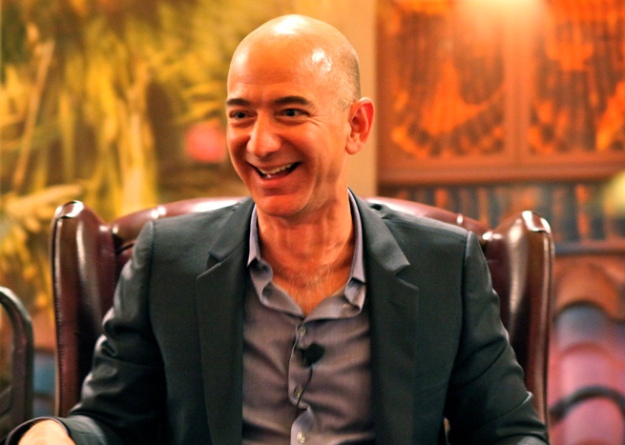When Amazon.com founder Jeff Bezos bought The Washington Post last year for the paltry sum (especially for him) of $250 million, newspaper observers hoped that it presaged a new era for the struggling daily. For now, at least, it looks like those hopes are becoming a reality.
The Post is ramping up. Michael Calderone of The Huffington Post reported recently that the paper has hired 50 full-time staff journalists so far in 2014, and that it is making at least a partial return to its status as a national newspaper — a status it had retreated from during the final years of Graham family ownership. Executive editor Marty Baron told Calderone:
We’ve talked a lot about the need to grow. We’ve said that in order to grow, we have to look outside our own immediate region and the only opportunity for growth is digital. We are looking at growth opportunities around the country.
Richard Byrne Reilly recently wrote in VentureBeat that Bezos isn’t quite the hands-off owner that he appears to be, taking a deep interest in the paper’s digital initiatives. According to Reilly:
With chief information officer and technology vice president Shailesh Prakash at the helm, Bezos is pumping cash into the once staid company’s IT infrastructure. Lots of it. The new leadership has put 25 computer engineers into the newsroom, helping reporters craft multifaceted digital stories for mobile devices.
The Post’s expansion is a heartening development, and it’s one we’re seeing unfold in Boston as well. Red Sox principal owner John Henry, whose $75 million purchase of The Boston Globe was announced just days before Bezos said he was buying the Post, has, like Bezos, shown a willingness to try to grow his news organization out of the doldrums into which it had fallen.
The Globe is making some interesting moves into video; has redesigned its nearly two-decade-old free Boston.com site while moving all Globe content behind a flexible paywall at BostonGlobe.com; has developed new verticals for innovation and technology (BetaBoston) and arts and entertainment (RadioBDC and BDCWire); and will soon unveil a standalone site covering the Catholic Church.
As for the Post, it’s notable that its comeback coincides with a serious misstep at The New York Times — the botched firing of executive editor Jill Abramson. Combined with the loss this week of the Times’ chief digital strategist, Aron Pilhofer, to The Guardian, and the release of an internal report criticizing the Times’ own digital strategy, it may not be an exaggeration to suggest that energy and momentum have swung from the Times to the Post. (To be sure, the Times’ new executive editor, Dean Baquet, enjoys an excellent reputation.)
From the Pentagon Papers and Watergate in the early 1970s until about a decade ago, the Times and the Post were often mentioned in the same breath as our two leading newspapers. Good as the Post was during the final years of the Graham era, budget-cutting allowed the Times to open up a lead and remain in a category of its own.
It would be great for journalism and for all of us if Bezos, Baron and company are able to level the playing field once again.
Photo (cc) by Steve Jurvetson and used under a Creative Commons license. Some rights reserved.
Discover more from Media Nation
Subscribe to get the latest posts to your email.

